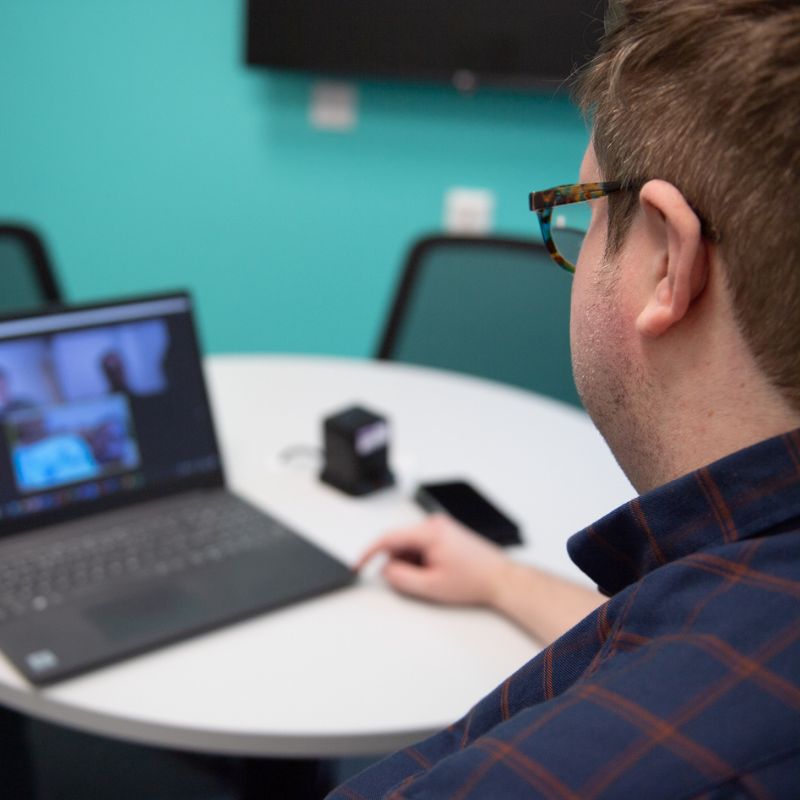Leading unconscious bias training in the UK, Europe, USA and beyond
One of the main obstacles to a diverse and inclusive workforce is implicit bias. As a leader or manager, overcoming this is critical to the success of your business, for both your bottom line and company culture. Our implicit bias training will support your organization in enhancing its talent pipeline, from staff recruitment to career progression.
With decades of experience, EW Group is the leading specialist in bespoke unconscious bias training. Our range of innovative in-person or virtual training, cutting edge digital e-learning modules and powerful actor-based workshops help companies combat unconscious bias on all levels, elevating your integrity, credibility and consistency. What’s more, it will make your business a better place to work.

Why is unconscious bias training important?
Living in a highly stratified society, we are seldom exposed to people who are different from us in a meaningful way. This leads us to be influenced by stereotypes, which in turn affects our attitudes and behaviors. We may be fully aware of some of these biases, which in turn helps us combat our prejudice more effectively.
However, some of these assumptions are implicit rather than explicit — that’s what we refer to as ‘unconscious bias’ — and are often displayed subtly and without premeditation or intention. For example, through our body language, and mannerisms. Unfortunately, this makes them difficult to overcome, so they need to be made conscious in order to be tackled.
Unconscious bias training is important because it helps us to recognize and reduce the impact of our unconscious biases on others. Coming to grips with our unconscious biases is critical to making decisions in an objective, merit-based manner — the key to a thriving business.
Comprehensive approach
Collaborative design. Positive delivery. Practical outcomes
Every business has its strengths and weaknesses when it comes to unconscious bias, so our approach is tailored to your specific objectives and goals. Led by these priorities, our diversity consultants will incorporate a range of unconscious bias training activities into your course, including:
- Presentations to set the context
- Personal experiences
- Customised actor-based scenarios
- Real-life case studies
- Facilitated exercises for individuals, small groups and the whole group
- Reflection, review and action planning
Our unconscious bias training is designed to be enlightening, interactive and cross-cultural. It is not limited to single strands of diversity or protected characteristics and addresses all areas of business, especially vulnerable functions such as:
- Recruitment and selection
- Performance reviews and appraisals
- Promotions, acting on opportunities and fast-tracking
- Selecting project teams
- Decision-making and governance
- Supplier procurement
Unconscious Bias Training: Delivery Options
People learn in different ways. The same applies to businesses. Our bespoke approach has enabled us to develop unique methods of training leaders, managers, and all staff groups, in a form that best suits their roles, industry and current subject knowledge.
Face-to-face in-person
Our half or full-day face-to-face sessions are ideal for small delegate groups of up to 15 people. Our interactive content and actor-led scenarios (video or live) encourage reflection, discussion, and practical application. The content can be tailored to suit leaders, managers, or all staff.
Face-to-face virtual
We can replicate our in-person training using our virtual classrooms, which includes features such as whiteboard, polls, and breakout rooms. The content can be adapted to suit the delegates and the ideal number of participants is up to 12.
Webinars
For larger groups of up to 50 people, our one-hour webinars will engage your staff in real-time from the comfort of their own seats. Our two facilitators present engaging content which can include filmed actor scenarios, chat box, and polls, ensuring maximum delegate engagement.
E-Learning
Our 30-minute modules are designed for personal learning at all levels. The modules provide interactive exercises culminating in a knowledge check with a pre-determined pass rate and report back. You can choose between hosting on your LMS (transferred via SCORM) or opt for the EW Group’s learning management system.

Led by outcomes
Your delegates will leave our training with the skills they need to immediately make an impact
- Clearly articulating their commitment to overcoming unconscious bias in the workplace
- Acknowledging the subtle ways in which unconscious bias plays out at work
- Understanding the role of diversity best practices in their daily duties
- Comprehending the various aspects within their roles that may be open to unconscious bias
- Identifying opportunities to promote best practices and work with cultural adaptability
- Employing a set of practical tools and action plans to address unconscious bias wherever they work
Who is this Unconscious Bias training for?
Unconscious bias training is ideal for a variety of professionals and organizations looking to foster a more inclusive and equitable workplace, including:
- HR Professionals: improve recruitment, retention, and employee relations
- Managers and leaders: enhance team dynamics and decision-making processes
- Employees at all levels: promote awareness and personal growth in interactions with colleagues and clients
- Diversity and Inclusion Officers: develop effective strategies and initiatives
What our clients say
EW Group's Unconscious Bias training team
Find out how we can support you to overcome unconscious bias in your workplace
Get in touch Read Our BlogUnconscious Bias FAQs
Why is it important for businesses to address unconscious bias in the workplace?
A workplace environment benefits from merit-based processes, ensuring you’re recruiting, retaining and promoting the best talent. This is why businesses are particularly susceptible to unconscious bias, and the effects can be serious. For example, your staff may feel excluded, which results in lower productivity and engagement. In extreme cases, workplace bullying, unlawful harassment or discrimination might arise, which will potentially lead to costly mediation work and employment tribunals. On the other hand, removing unconscious bias allows your company to fully harness the benefits of diversity.
Are there different types of unconscious bias?
There are over 150 types of unconscious bias, many of which can affect the workplace severely. Each of these manifests itself in a wide range of ways. Affinity bias, for instance, will lead management to unintentionally prefer people who share the same qualities with them, while conformity bias causes your employees to be swayed by the opinions of their superiors. Gender, name, age and even height can also act as factors in people’s bias.
Does unconscious bias training work?
In recent years, some criticism has been thrown at unconscious bias training. However, there is conclusive scientific evidence that proves that it does, in fact, work. The existence of unconscious bias in the brain has been demonstrated time and time again through functional magnetic resonance imaging (fMRI) scans, so we know it’s real. At the same time, studies have shown that training interventions managed to increase awareness of it and reduce the strength of explicit bias. A large body of evidence reveals that unconscious bias training is effective, but there’s always a need for more research, especially into the impact of long-term guidance.












